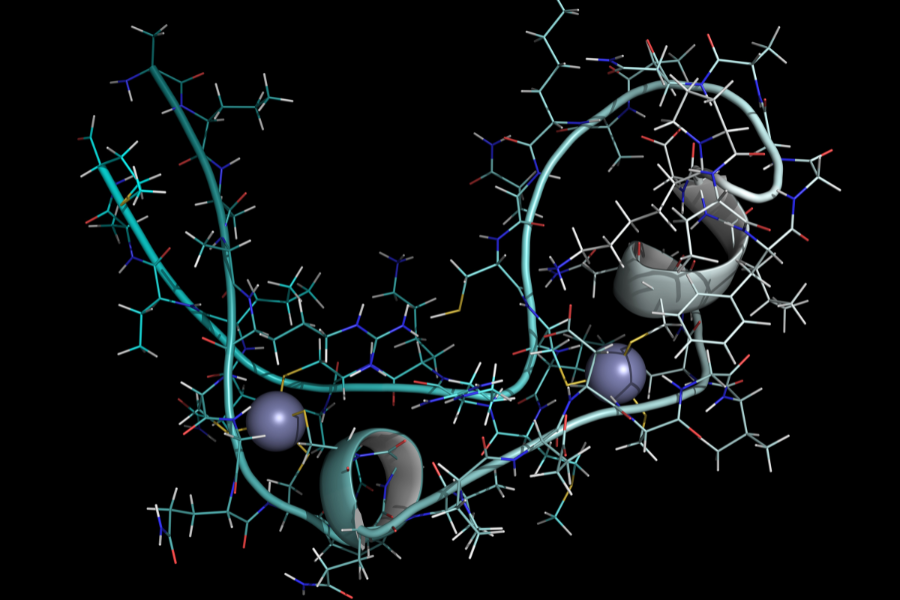What we love about Cortexin:
It is similar to Cerebrolysin (LINK HERE) because it contains various neuropeptides and amino acids that have an anti-aging/longevity benefit to the brain. Although Cerebrolysin is the “gold standard” because it’s been around forever, Cortexin has a proven track record – and it’s administration route is subcutaneous injection instead of Intramuscular, making it a much easier application. It is not just being utilized for conditions such as epilepsy, but like Cerebrolysin, also has nootropic brain enhancing cognitive benefits. Cortexin has also been shown anecdotally to have a calming effect.
Cortexin
Cortexin is an international peptide bioregulator used to improve cerebral circulation and treat conditions such as encephalopathy, acute and chronic encephalitis and encephalomyelitis, epilepsy, brain trauma, and viral and bacterial neuroinfectious.
It is recognized for its wide range of neuroprotective and neurotrophic effects, potentially making it a key agent in improving brain function and treating neurological disorders. Let’s take a better look at Cortexin and what it brings to the table!
What is Cortexin?
Cortexin is an innovative nootropic and neuroprotective medication primarily known for its beneficial impact on brain function. It enhances cerebral activities and is used to treat various neurological conditions, including brain ischemia (diminished blood flow to the brain), brain injuries, and epilepsy. Cortexin is particularly effective in addressing both acute neurological incidents and chronic cerebral ischemia. Its ability to cross the blood-brain barrier allows it to target cellular dysfunction and oxidative stress at a molecular level. Additionally, it is considered to be twice as potent as the well-known nootropic Cerebrolysin.
Cortexin is a complex blend of peptides and amino acids, derived from the cerebral cortex of cattle or pigs, making it a polypeptide of tissue-specific animal origin. It is believed to function by influencing neurotrophic factors, modulating neuronal excitability, and protecting neurons from damage. Its antioxidant properties also help neutralize harmful free radicals in the brain.
How Does Cortexin Work?
The exact molecular mechanism of action of Cortexin is complex and it involves multiple pathways.
- Neuroprotection: Cortexin exhibits neuroprotective properties, which means it helps protect nerve cells (neurons) from damage. This is especially important in cases such as ischemic stroke or brain trauma, when there is a risk to neurons from physical stress or oxygen deprivation.
- Modulation of Neurotransmitter Systems: Cortexin influences various neurotransmitter systems in the brain. Chemical messengers called neurotransmitters help neurons communicate with one another.. Cortexin can influence cognitive functions such as memory, learning, and general brain function via modifying these systems.
- Enhancement of Neurotrophic Factors: Neurotrophic factors are proteins that support the growth, survival, and differentiation of neurons. It is thought that Cortexin promotes these factors’ synthesis or activity, which helps keep neural networks healthy and regenerated.
- Antioxidant Effects: Oxidative stress is caused by an imbalance between free radicals and antioxidants in the body, leading to neuronal damage. Cortexin has antioxidant properties that work to neutralize free radicals, reducing oxidative stress and its harmful effects on brain cells.
- Genomic Effects: There is evidence to suggest that Cortexin might influence gene expression related to neuronal function and survival. By altering the expression of certain genes, Cortexin could potentially enhance neuronal resilience and plasticity.
- Impact on Synaptic Plasticity: Synaptic plasticity is the ability of synapses (the junctions between neurons) to strengthen or weaken over time. This plasticity is crucial for learning and memory. Cortexin may have an impact on cognitive processes by regulating synaptic plasticity.
- Neuronal Excitability and Membrane Stabilization: Cortexin affects neuronal excitability, which is the ability of neurons to fire signals. Additionally, it may help improve brain function and neural signal transmission by stabilizing neuronal membranes.
- Anti-inflammatory Properties: Inflammation in the brain contributes to various neurological conditions. Because Cortexin has anti-inflammatory properties, it can lessen inflammation and its detrimental effects on brain function.
- Improvement of Cerebral Circulation: Cortexin also enhances cerebral blood flow, ensuring that neurons receive adequate oxygen and nutrients necessary for their function and survival.
Benefits of Cortexin
While Cortexin isn’t as widely known as some other supplements, its properties make it worth considering due to its effects. Here are some key benefits:
- Anti-Inflammatory Effects: Cortexin has powerful anti-inflammatory properties, which can help combat chronic inflammation. Inflammation plays a role in various health conditions, so anything that can reduce it is valuable.
- Antioxidant Capacity: Cortexin acts as an antioxidant, neutralizing free radicals that contribute to oxidative damage. By protecting against oxidative stress, Cortexin may help prevent aging and certain diseases.
- Heart Health: Some studies suggest that Cortexin may support heart health by improving blood vessel function and reducing blood pressure.
- Autoimmune Disorders: Cortexin’s anti-inflammatory effects may benefit individuals with autoimmune disorders like arthritis. It helps manage symptoms and promotes overall well-being.
Side Effects
Cortexin is generally well tolerated, although some users may experience mild gastrointestinal distress, such as stomach upset or bloating. Allergic reactions are rare but possible, so watch for symptoms like rash or difficulty breathing. Cortexin may also interact with certain medications, especially blood thinners. Pregnant or breastfeeding women should consult a healthcare professional before using Cortexin due to limited safety data during these periods.
Dosage
The drug is administered intramuscularly. The contents of the vial are dissolved in 1-2 milliliters of either a 0.9% sodium chloride solution, injection-ready water, or a 0.5% procaine (novocaine) solution prior to injection. The injection is given once daily:
- Adults receive a dose of 10 mg for 10 days.
- Children with a body weight of up to 20 kg receive a dose of 0.5 mg/kg, while children weighing more than 20 kg receive a dose of 10 mg for 10 days.
- It has also been suggested that for milder cases, 5mg per day for 10 days may be recommended.
If necessary, the course can be repeated in 3-6 months.
FAQ
Can Cortexin improve memory?
While not specifically marketed as a memory enhancer, Cortexin’s neuroprotective effects may indirectly benefit memory and cognitive function.
Can Cortexin be used for anxiety or depression?
Cortexin is not specifically indicated for anxiety or depression.
Does Cortexin have any interactions with other drugs?
Cortexin may interact with blood thinners or anticoagulants. Tell your doctor or a peptide professional about any additional medications you use.
How long does it take to see results with Cortexin?
Individual responses vary, but some users report improvements within a few weeks of consistent use.
Can Cortexin be used for stroke recovery?
Cortexin’s neuroprotective properties may aid stroke recovery.
Get Started, Book a Free Consultation
Book a free 20-minute consultation to learn more about how this peptide can help you.




